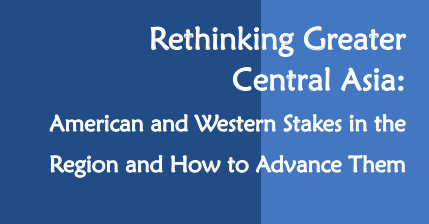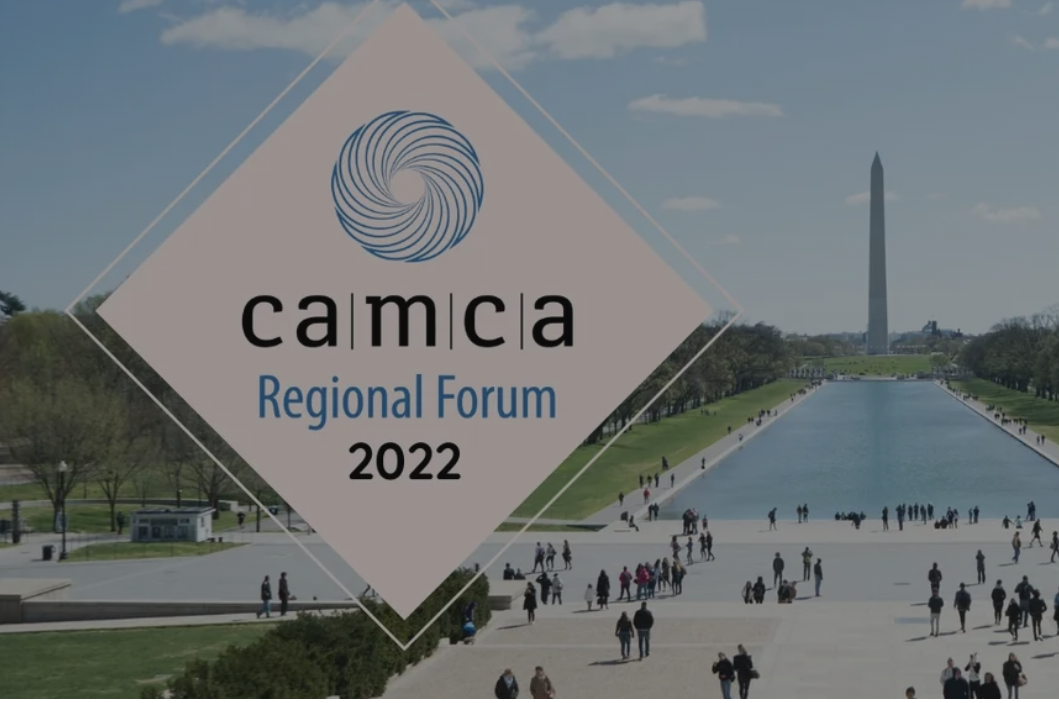CACI FORUM - Afghanistan: What's Next For The U.S. And The West?
Join us for a hybrid forum co-organized by the CAMCA Forum founders:

Two years after the Taliban gained power in Afghanistan no country has recognized its government and its leadership remains under international sanctions. However, dozens of countries, including Russia and China, have exchanged sub-ambassadorial officials with Kabul. Several international projects are underway, and donors still provide Afghanistan with millions of dollars for humanitarian purposes—all this as Taliban rulers continue to impose severe restrictions targeting girls, women, and minorities, and brutally crack down on all forms of dissent.
You are invited to join a panel discussion that will assess the current challenges facing the U.S. and its partners in dealing with Taliban-ruled Afghanistan. Topics will include options for alleviating the suffering of the Afghan people without helping their rulers.
Panelists:
Ali Ahmad Jalali, Distinguished Professor, Near East South Asia Center for Strategic Studies, National Defense University
Farishta Sakhi, Project Director, Freedom House; CAMCA Network Member
Scott Worden, Director, Afghanistan and Central Asia Programs, United States Institute of Peace
Sami Mahdi, Editor-in-Chief, Amu TV; CAMCA Network Member
Moderator: S. Frederick Starr, Chairman, Central Asia-Caucasus Institute at the American Foreign Policy Council
When: Tuesday August 15, 2023 from 3:30-5:00 PM EST. Registration and light refreshments begin at 3:00 PM.
Where: American Foreign Policy Council, 509 C Street, NE, Washington, DC 20002 and via Zoom
This email address is being protected from spambots. You need JavaScript enabled to view it. to register to attend in-person.
Click here to register to attend via Zoom.
Spring 2023 CAMCA Fellow Presentation: Ripples from Russia's War in Ukraine in the CAMCA Region
Join the spring 2023 Rumsfeld Foundation's Central Asia, Mongolia, the Caucasus and Afghanistan (CAMCA) fellows for a presentation on the regional economic and political implications of Russia's war in Ukraine. Speakers will examine various strategies to better protect their sovereignty, independence and territorial integrity and improve conditions for further economic development. Register for this in-person event to discuss these issues and learn why the U.S. should support the CAMCA countries in this challenging international environment.
Moderator: S. Frederick Starr, Chairman, Central Asia-Caucasus Institute at theAmerican Foreign Policy Council
When: Tuesday April 25, 2023 - 3:00-4:30 PM EST
Where: American Foreign Policy Council, 509 C Street, NE, Washington, DC 20002
In-Person Meeting: CAMCA: A New Era

In-Person Meeting
Co-organized by the CAMCA Forum founders:
The Central Asia-Caucasus Institute at AFPC
The CAMCA Network
The Rumsfeld Foundation
Forum on CAMCA: A New Era
Join the fall 2022 Rumsfled Foundation Central Asia, Mongolia, the Caucasus and Afghanistan (CAMCA) fellows for a presentation on the region's next chapter. From it's geostrategic location to its large and viable workforce, CAMCA countries have the potential to create a shared economic system supporting regional trade investments, labor and peacekeeping, Join the Fellows to learn how the U.S. can better interact with, and invest in, this rapidly developing region.
When: Wednesday November 9, 3:00 - 4:30 PM EST
Where: American Foreign Policy Council, 509 C Street, NE, Washington, DC 20002
Moderator: Svante Cornell, Director, Central Asia-Caucasus Institute at American Foreign Policy Council
Rethinking Greater Central Asia: American and Western Stakes in the Region and How to Advance Them

Register for the June 15-16, 2022 CAMCA Forum!

Join us June 15-16 for the 2022 CAMCA Regional Forum!
THEME: "New Geopolitics and Geoeconomics in CAMCA"
SESSION TOPICS
- CAMCA Geopolitics after Ukraine: What’s Desirable? What’s Possible?
- How to Deal with Echo-sanctions in CAMCA
- Building Modern Skills in CAMCA Countries
- Securing CAMCA’s Digital Future in an Era of U.S.-China Geo-Tech Rivalry
- Trade and Transport in CAMCA: Regional and Global Connectivity
- What’s Next in Afghanistan?
- Prospects of Regional Financial Structures in CAMCA
- Women Taking Power in CAMCA: Prospects and Barriers
- Food Security and Building Agritech in CAMCA
- Meet the New Entrepreneurs of CAMCA
- Accelerating Regional Cooperation in Policy Analysis: A Roadmap
- Investing in CAMCA: How to Seize Opportunities
Forum speakers represent a wide variety of sectors and expertise across the CAMCA region and beyond...
Below is a sample of the international and U.S.-based organizations and businesses that confirmed speakers
- Central Asia-Caucasus Institute
- American University of Afghanistan
- National Development Agency of Mongolia
- Chemonics International Inc.
- Cintana Education
- Education Committee of the Georgian Parliament
- Special Inspector General for Afghanistan Reconstruction
- UNDP Kyrgyzstan
- Hudson Institute
- Batumi Multimodal Terminal
- Free Democrats Party of Georgia
- T-Cell Tajikistan
- White & Case LLP
- CJSC Bank of Asia
- Center for International Private Enterprise (CIPE)
- Center for Strategic and International Studies
- Avesta Investment Group
- Atlantic Council
- Alif Capital
- And many more...
|
The CAMCA (Central Asia-Mongolia-Caucasus-


